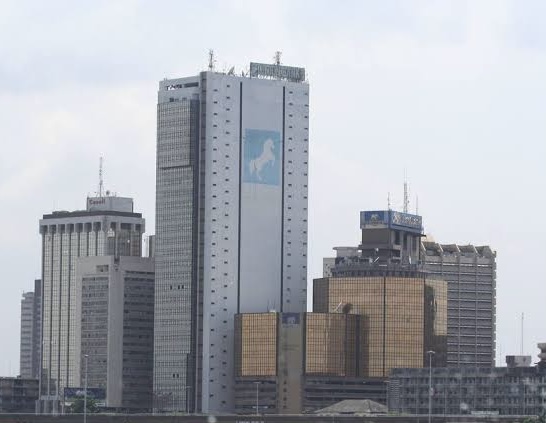
Nigeria’s FMCG beverages sector is one of the country’s most visible private-sector employers, sustaining thousands of jobs across brewing, bottling, distribution, and sales. Four brands dominate the conversation: Nigerian Breweries (Heineken), Guinness Nigeria (Tolaram), Nigerian Bottling Company (Coca-Cola HBC), and Seven-Up Bottling Company. Their products may be household staples, but the way they manage people is equally important — especially in an economy where talent retention and productivity are under pressure.
The past two years have tested even the best-run organisations. Nigerian Breweries announced a major reorganisation in April 2024, temporarily closing two of its nine breweries and redeploying affected staff rather than opting for mass redundancies¹. Guinness Nigeria completed a landmark ownership change on 30 September 2024, with Diageo selling its 58.02% stake to Tolaram while retaining long-term brand licensing². Nigerian Bottling Company doubled down on structured capability-building, expanding its Supply Chain Academy and youth employment initiatives³. Seven-Up Bottling Company continued to grow its footprint but faced recurring feedback on shift intensity and career progression for junior staff⁴.
Publicly available employee-experience data adds colour to the picture. Nigerian Breweries enjoys some of the highest “recommend to a friend” scores in the market — over 90% — alongside strong ratings for culture and career growth, although work-life balance sits lower in the mid-3s⁵. Guinness Nigeria’s Indeed rating is a robust 4.2/5, with employees praising resources and environment but noting variations in team-level management⁶. Nigerian Bottling Company holds an overall 3.6/5 on Glassdoor, with compensation in the low-3s but strong visibility for training and skills programmes⁷. Seven-Up Bottling also rates around 3.6/5, with 84% recommending it as a workplace, though reviews highlight long hours and inconsistent formal training⁸.
Summarised HR Analysis by Company
Nigerian Breweries (Heineken)
Strengths: Exceptional redeployment strategy during restructuring; strong cultural alignment; high recommend scores; robust training and development.
Improvement Areas: Work-life balance for plant/logistics staff; faster promotion cycles in high-skill technical roles.
Guinness Nigeria (Tolaram)
Strengths: Strong governance culture; transparent post-acquisition communication; access to global Diageo training frameworks; good compensation levels.
Improvement Areas: Consistency in people management across teams; clearer career growth pathways for mid-level staff.
Nigerian Bottling Company (Coca-Cola HBC)
Strengths: Structured capability-building via Supply Chain Academy; targeted youth skills initiatives; multinational HR systems.
Improvement Areas: Compensation competitiveness in certain roles; work-life balance monitoring; inclusion of more departments in formal training.
Seven-Up Bottling Company
Strengths: Strong brand recognition; graduate trainee programmes; stable employment in core roles.
Improvement Areas: Address shift-intensity fatigue; expand structured training; formalise internal mobility opportunities.
Summary of Public Employee-Experience Indicators
| Company | Overall rating | WLB | Comp/Benefits | Career | Recommend % | Notable HR Levers |
| Nigerian Breweries | ~3.8–4.2 | 3.1–3.4 | ~3.4 | 3.7–3.8 | 92–94% | Redeployment in restructure; brand & learning reputation |
| Guinness Nigeria | 4.2/5* | n/a | ~3.6–3.8 | n/a | n/a | Governance continuity; resources & training culture |
| NBC (Coca-Cola HBC) | 3.6/5 | n/a | 3.3 | n/a | n/a | Supply Chain Academy; youth skills programmes |
| Seven-Up Bottling | 3.6/5 | n/a | 3.6 | n/a | 84% | GT intake; mixed reviews on hours/training |
*Indeed Nigeria, Feb 2025.
Four themes emerge from the comparative data.
Theme 1: Work–Life Balance — The Sector’s Persistent Weak Spot
Long shifts, weekend rotations, and seasonal production peaks remain a defining challenge, especially for brewery, bottling, and logistics teams. Nigerian Breweries’ WLB scores reflect this tension despite its strong overall culture ratings, while Seven-Up employees consistently cite shift fatigue. Without proactive roster management, wellness initiatives, and built-in downtime, the physical and mental strain risks undermining retention for skilled technical staff.
Theme 2: Capability-Building — The Clear Competitive Differentiator
NBC’s Supply Chain Academy³ and Guinness’s legacy Diageo training systems⁶ demonstrate how structured learning pathways can elevate both productivity and loyalty. Nigerian Breweries also invests in training, though some roles still rely heavily on informal learning. Seven-Up’s graduate trainee schemes offer entry-level opportunities, but mid-level training consistency remains a gap. As automation and safety standards rise, the companies that treat capability-building as a strategic investment will hold the long-term advantage.
Theme 3: Change Management & Communication — The Test of Organisational Resilience
NB’s 2024 restructuring¹ could have been a morale crisis; instead, its redeployment-first approach became a case study in preserving trust. Guinness navigated a major ownership change² with transparent timelines, brand continuity assurances, and retention of global training frameworks. In contrast, where communication is slower or less direct, uncertainty fuels disengagement long before operational changes take effect.
Theme 4: Compensation & Internal Mobility — The Retention Equation
Pay across the sector is competitive for Nigeria but modest compared to global FMCG peers⁴. This makes promotion clarity and internal mobility critical levers. NBC and Guinness stand out for structured transfer opportunities, while Nigerian Breweries’ transparent promotion criteria are offset by bottlenecks in saturated managerial bands. Seven-Up’s stability is valued but would benefit from visible career pathways to complement brand prestige.
The Evidence-Based Levers
- Track and publish plant-level work-life balance indicators quarterly.
- Expand academy models beyond supply chain into sales, digital, and maintenance skills.
- Standardise redeployment playbooks for crisis or market shocks.
- Launch internal-mobility dashboards showing promotion timelines and pathways.
In a market where operational reliability is the licence to compete, human capital is the multiplier. The four beverage giants have the brand equity, scale, and operational discipline. The ones that make equitable pay, measurable balance, and visible career growth a lived reality will lead the next decade of talent in Nigeria’s FMCG sector.
About the Author
Dr. Olufemi Ogunlowo is the CEO of Strategic Outsourcing Limited, a leading provider of personnel and business process outsourcing services in Nigeria. He is also a regular columnist on employment and workforce strategy.












